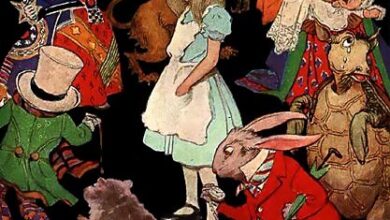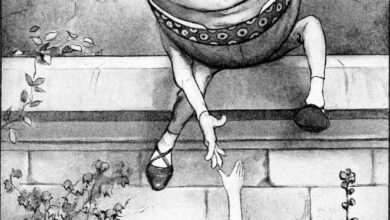
The Story of Benjamin Franklin by James Baldwin
Chapter II: School Days
When Benjamin Franklin was a boy there were no great public schools in Boston as there are now. But he learned to read almost as soon as he could talk, and he was always fond of books.
His nine brothers were older than he, and every one had learned a trade. They did not care so much for books. “Benjamin shall be the scholar of our family,” said his mother.
“Yes, we will educate him for a minister,” said his father. For at that time all the most learned men were ministers.
And so, when he was eight years old, Benjamin Franklin was sent to a grammar school, where boys were prepared for college. He was a very apt scholar, and in a few months was promoted to a higher class.
But the lad was not allowed to stay long in the grammar school. His father was a poor man. It would cost a great deal of money to give Benjamin a college education. The times were very hard. The idea of educating the boy for the ministry had to be given up.
In less than a year he was taken from the grammar school, and sent to another school where arithmetic and writing were taught.
He learned to write very well, indeed; but he did not care so much for arithmetic, and so failed to do what was expected of him.
When he was ten years old he had to leave school altogether. His father needed his help; and though Benjamin was but a small boy, there were many things that he could do.
He never attended school again. But he kept on studying and reading; and we shall find that he afterwards became the most learned man in America.
Benjamin’s father was a soap-boiler and candle-maker. And so when the boy was taken from school, what kind of work do you think he had to do?
He was kept busy cutting wicks for the candles, pouring the melted tallow into the candle-moulds, and selling soap to his father’s customers.
Do you suppose that he liked this business?
He did not like it at all. And when he saw the ships sailing in and out of Boston harbor, he longed to be a sailor and go to strange, far-away lands, where candles and soap were unknown.
But his father would not listen to any of his talk about going to sea.
Chapter III: The Boys and the Wharf
Busy as Benjamin was in his father’s shop, he still had time to play a good deal.
He was liked by all the boys of the neighborhood, and they looked up to him as their leader. In all their games he was their captain; and nothing was undertaken without asking his advice.
Not far from the home of the Franklins there was a millpond, where the boys often went to swim. When the tide was high they liked to stand at a certain spot on the shore of the pond and fish for minnows.
But the ground was marshy and wet, and the boys’ feet sank deep in the mud.
“Let us build a wharf along the water’s edge,” said Benjamin. “Then we can stand and fish with some comfort.”
“Agreed!” said the boys. “But what is the wharf to be made of?”
Benjamin pointed to a heap of stones that lay not far away. They had been hauled there only a few days before, and were to be used in building a new house near the millpond.
The boys needed only a hint. Soon they were as busy as ants, dragging the stones to the water’s edge.
Before it was fully dark that evening, they had built a nice stone wharf on which they could stand and fish without danger of sinking in the mud.
The next morning the workmen came to begin the building of the house. They were surprised to find all the stones gone from the place where they had been thrown. But the tracks of the boys in the mud told the story.
It was easy enough to find out who had done the mischief.
When the boys’ fathers were told of the trouble which they had caused, you may imagine what they did.
Young Benjamin Franklin tried hard to explain that a wharf on the edge of the millpond was a public necessity.
His father would not listen to him. He said, “My son, nothing can ever be truly useful which is not at the same time truly honest.”
And Benjamin never forgot this lesson.
Chapter IV: Choosing a Trade
As I have already said, young Benjamin did not like the work which he had to do in his father’s shop.
His father was not very fond of the trade himself, and so he could not blame the boy. One day he said:
“Benjamin, since you have made up your mind not to be a candle-maker, what trade do you think you would like to learn?”
“You know I would like to be a sailor,” said the boy.
“But you shall not be a sailor,” said his father. “I intend that you shall learn some useful business, on land; and, of course, you will succeed best in that kind of business which is most pleasant to you.”
The next day he took the boy to walk with him among the shops of Boston. They saw all kinds of workmen busy at their various trades. Benjamin was delighted. Long afterwards, when he had become a very great man, he said, “It has ever since been a pleasure to me to see good workmen handle their tools.”
He gave up the thought of going to sea, and said that he would learn any trade that his father would choose for him.
His father thought that the cutler’s trade was a good one. His cousin, Samuel Franklin, had just set up a cutler’s shop in Boston, and he agreed to take Benjamin a few days on trial.
Benjamin was pleased with the idea of learning how to make knives and scissors and razors and all other kinds of cutting tools. But his cousin wanted so much money for teaching him the trade that his father could not afford it; and so the lad was taken back to the candle-maker’s shop.
Soon after this, Benjamin’s brother, James Franklin, set up a printing press in Boston. He intended to print and publish books and a newspaper.
“Benjamin loves books,” said his father. “He shall learn to be a printer.”
And so, when he was twelve years old, he was bound to his brother to learn the printer’s trade. He was to stay with him until he was twenty-one. He was to have his board and clothing and no other wages, except during the last year. I suppose that during the last year he was to be paid the same as any other workman.




